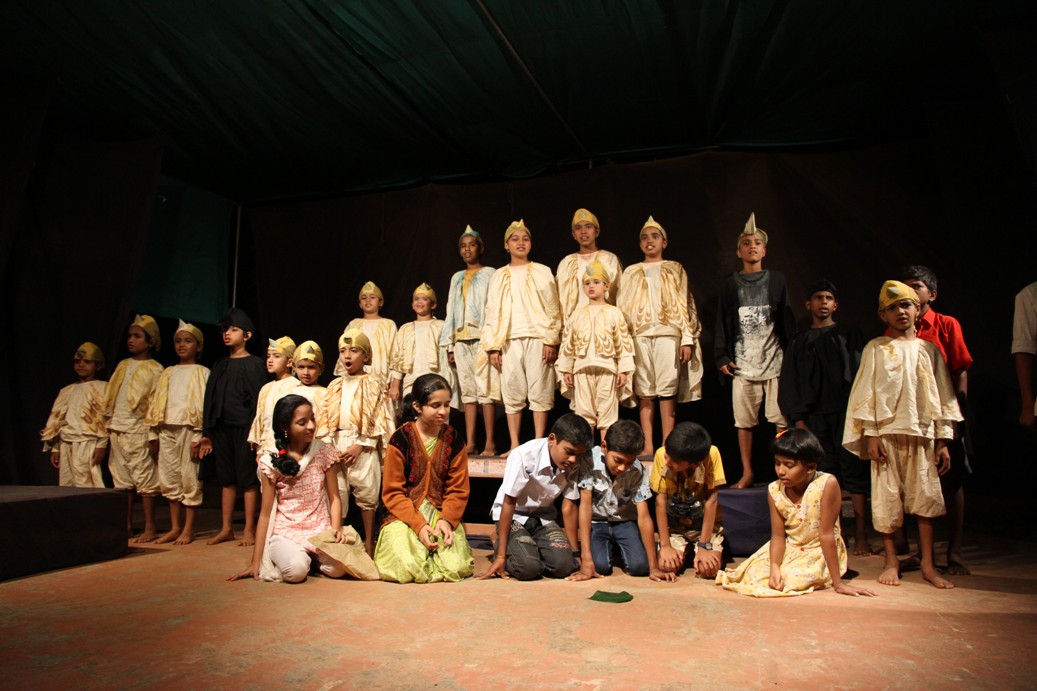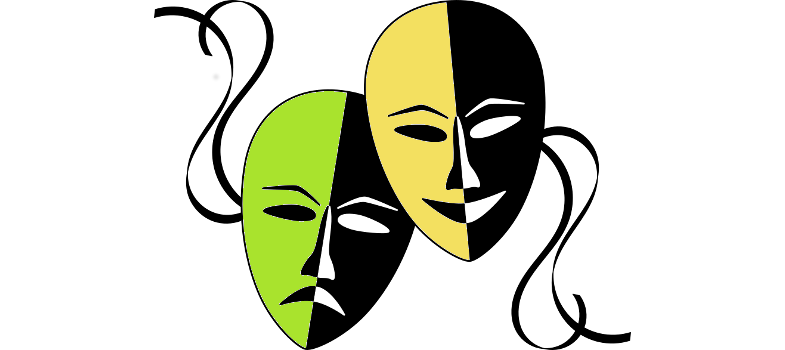Scriptwriting
The script serves as a blue print in constructing a play. Let's see more!
A script serves as a road map for a play. It includes everything about a play. The characters, their information, events, dialogues,
suggestions about set, property, lights, entries, exits, movements of characters, and any write- up to help the director or a reader.
Playwriting
is not an independent act like writing a story, a poem, or a novel. It never is said to be complete by just putting it on paper. A playwright can always remember that, whenever he writes, he writes it to get performed, staged, and then it gets its identity, a play.
Hence
the process is more of a visualization. Keeping the theatre in mind,
playwright writes events of real-life with dramatization at the same time. The dramatization is different according to the subject selected and the style chosen for the play.
Playwriting is mostly a slow process and may require several sittings. Very rarely, a play is completed in one sitting at a stretch. People tell stories of writing a particular play in one night. The Thought process for the same play must have begun long back. With due respect to all those people what I can say is, with hardly any exception, plays need rewriting.
Traditional approach: Script to rehearsals
The `above described' process where a playwright alone writes a play is a
traditional approach. Here the process is completed by one person, a
playwright, from getting a particular idea to completion of the play. He may refer books or talk with people, but after studying everything, he writes a play in his words without any assistance. He imagines the characters, he knows the story to be narrated, the language to used and everything.
He then reads it for the director one day. After the first reading, they might do some changes and playwright may rewrite the script.
This process of making drafts may continue for a long time until the director is satisfied. After doing some rehearsals, the script may require some changes. This process depends on `playwright-director' relationship and the kind of perfection they expect from the play.
Participatory approach: Rehearsals to script
From getting the idea to completion of the script, there is a team involved in this process of playwriting. The team includes all those who come together to stage a play.
Here we are dealing with the children's play. Mostly for children from fourth to ninth standard.
To accompany these children I expect the interested parents, teachers and a children's theatre practitioner who takes a lead. The practitioner takes efforts to bring all together, finds the place for rehearsals and keeps the process active.
Sometimes they don't know each other well when they all come together. But then they start interacting with each other. They introduce themselves. They share their stories. They start enjoying the company. After a few days, they are but a big family. They meet regularly, eat together, and celebrate the happy moments.
Though they don't have any script with them in the beginning, they have decided to create one.
They start playing theatre games. They make small groups and start presenting short ideas after fifteen minutes of discussions. Many discussion sessions follow, and finally, they are ready with the script. Not just script, but they are prepared with the performance because with this approach; they do it opposite. They reach towards script through the performances. They perform first with the improvisation technique in rehearsals and go on doing it. Day by day, they reach the destination of the script. They shape a particular idea to its best.
Only then they write a draft.
A model script for discussion: A Landscape
We are from different countries and have different languages. But the theatre will connect us. This original script in the Marathi language is translated here to English for us to read and comment on. We will use this script for our discussion on playwriting:

A Landscape team, CC-BY-NC-ND, Rajendra Chavan
Script: https://drive.google.com/file/d/1PGLYceNdzXCwqDQSGlLAecOcDAOAWBev/view?usp=sharing
The play had the first performance on 25th December 2012. The rehearsals began on 20th October 2012. It was staged with rehearsals for about two months. The play was a big challenge for acting. How one can fly like a bird on the stage? We sat together and decided to give a try.
